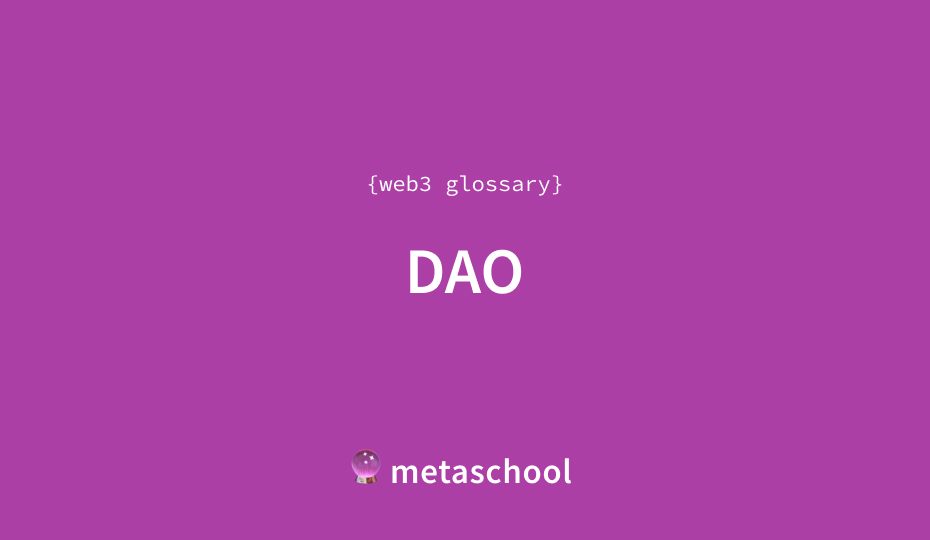Table of Contents
What is a DAO?
A DAO stands for Decentralized Autonomous Organization. It is a community-led entity that has no central governing body. It is an emerging form of the legal structure whose members share a common goal to act in the entity’s best interest.
DAO purpose and history 📖
DAOs became hugely famous because of their aim to diminish centralization in organizations. In traditional systems, one or more people on the top only have the authority over all strategic decisions. Moreover, in DAOs the authority is distributed among the people of the organization.
In 2016, a group of developers highly inspired by the concept of blockchain decentralization came up with the name Decentralized Autonomous Organization or DAO.
The concept was shared by BitShares founders in 2015 and then further refined by Ethereum’s Vitalik Buterin in 2016. And the first DAO was named ‘The DAO’. It was considered an anti-central authority organization created by developers for empowering employees and facilitating cryptocurrency transactions.
Popular DAOs and their tokens 🎫
To be a member of a DAO you have to purchase a token. The most famous example of DAO is MakerDAO and if you want to be a part of it you must have their token. Some other examples include:
- Curve DAO (CRV)
- BitDAO (BIT)
- Aragon (ANT)
The voting system in DAOs 🗳
DAOs work to decentralize decisions. These decisions are made when every member gets the right to vote with their DAO token.
This voting process is posted on the blockchain with pre-defined rules so that it can not be tampered with. Each user has to choose mutually-exclusive options. Voting power distribution among token holders is usually based on the number of tokens they hold.
For example, if User A holds 10 tokens and User B holds 5 tokens, it means that User A will have twice the voting power of User B.
How to create a DAO ⛓
If you want to start a decentralized autonomous organization of yours, there are some technical and non-technical steps, to begin with, and follow.
Non-technical steps
- Create a mission statement
- Build a community
- Discover governance
- Determine ownership
Technical steps
- Own an Ethereum Name Service domain
- Pay crypto for DAO creation
- Use your ENS domain to create and manage your decentralized autonomous organization
- Construct your DAOs rules, depending on the requirement of voting duration and percentage support
Some challenges that DAOs can face
Like any other organization, DAOs are also not immune to challenges. Here is a list of issues a DAO can potentially face:
Regulations: There are countries in the world that do not have proper legislation for centralized organizations, let alone a DAO. This can perhaps be the biggest challenge faced by a DAO. A decentralized organization in a centralized ecosystem with barely any laws and regularities can bring challenges with itself.
Scalability: Blockchains themselves today are experimenting with different ways to bring address the scalability and expansion problem in blockchain once and for all. A DAO that takes humongous help from blockchain technology can face similar issues.
Slow decision-making: In DAO, those token holders who have a certain standing, and a certain type of portfolio can partake in the voting system. This is quite similar to what happens in staking. This voting system facilitates decision-making in a DAO. The current voting system can also create bottlenecks and slow down the process because there is no centralized entity.
In conclusion, while there are challenges, they are easily outweighed by the numerous advantages of DAOs and how they shape the future of organizations. The best thing about DAOs is that they’re led by the community instead of a central authority. The community has a better chance to succeed when it takes informed decisions together, democratically. This can also lead to fewer conflicts that can be resolved by mutual understanding.
